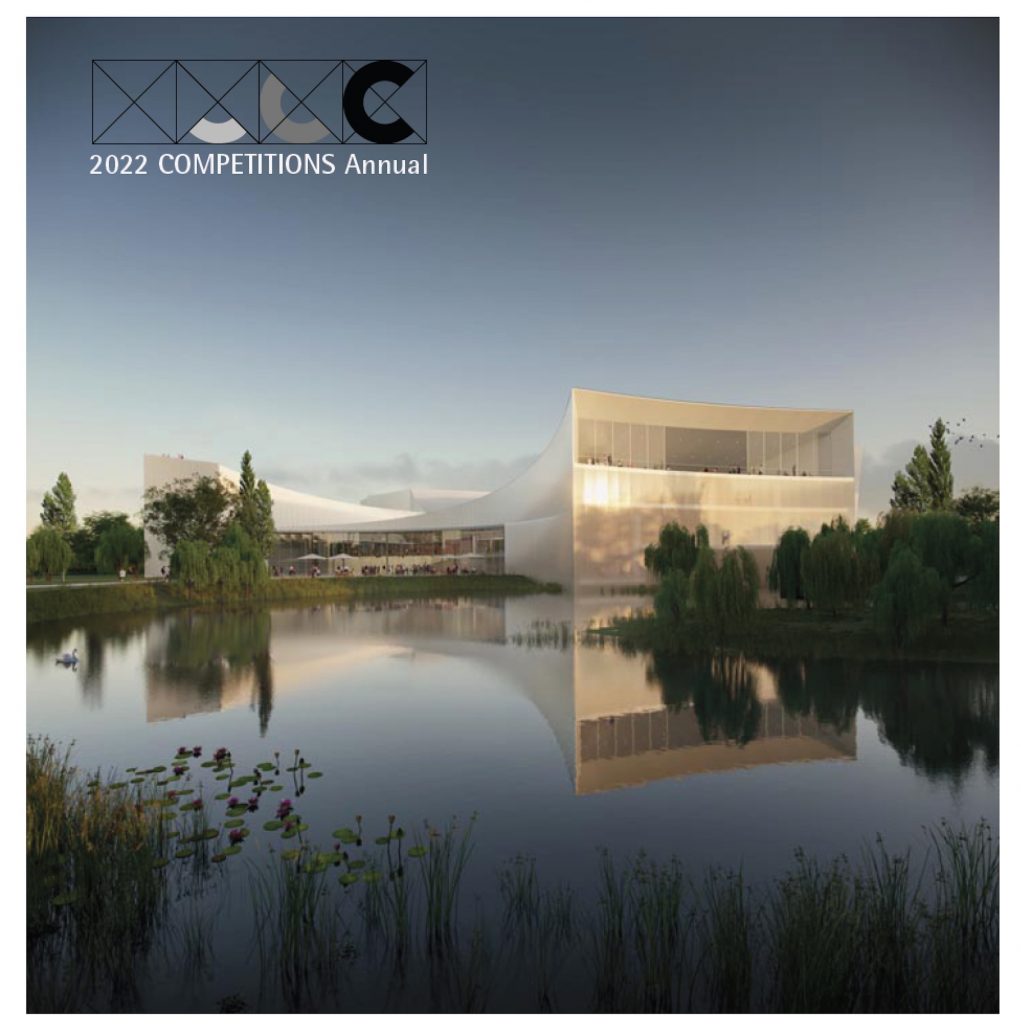The Future Park Design Ideas Competition: New Public Space for Melbourne
Sponsors: University of Melbourne, in partnership with Australian Institute of Landscape Architects (AILA)
Type: Open, international, ideas
Location: Melbourne, Australia
Eligibility: This competition seeks to enhance the role of landscape architecture and the public realm in Australian cities. However, the competition does not restrict entry to registered landscape architects or those studying within landscape architecture programs. Instead the competition aims to inspire an open and dynamic dialogue between built environment disciplines, the broader community, government and the private sector.
This single stage competition is open to established and emerging designers (tertiary students) of the built and natural environment disciplines (i.e. landscape architecture, architecture, urban design, environmental planning and ecology, environmental engineering).
Victorian high school students studying art, design, environmental studies and associated subjects are also encouraged to submit proposals within the student category.
Awards (categories will likely include):
Professional and tertiary (international) – Up to AUD$20,000 to be allocated as prizes
High school (open to Victorian students only) – Work experience at a landscape architecture office (tbc)
Timeline:
22 March 2019 – Official Competition Launch (Melbourne Design Week, Melbourne School of Design, University of Melbourne)
31 May, 2019 – Entries open
1 August,2019 – Submission Deadline
September 2019 – Shortlisting
Design Challenge:
In 1837 surveyor Hoddle’s plan laid the foundations for the city of Melbourne, transforming the endemic landscape of wetlands, open grasslands and custodial lands of the Kulin nation into a speculative real estate grid surrounded by colonial parkland. Featuring a botanic garden, a Domain, along with other significant garden squares and parks, this generous layer of open space was integral to the development of ‘Marvellous’ Melbourne – a vibrant late nineteenth century city of international prominence.
Fast forward, and Melbourne’s rapid millennium growth has reshaped the city centre and inner suburbs into a dense urbanism, with apartment towers and medium density housing constructed on former industrial sites and lining major transport corridors. Melbourne is now considered the fourth fastest growing city in the OECD, and is expected by 2050 to eclipse Sydney as Australia’s largest city. This population growth and densification raises questions over the capacity of existing parks to meet the needs of the contemporary city.
This idea competition challenges professional and emerging landscape architects, urban designers, architects and planners to speculate on new park possibilities for a future Melbourne. How can parks shape Melbourne’s urban form? Where should this new public open space be located, how should it be configured and what is its role? Is a new signature park in the spirit of Seoul’s Cheonggyecheon Park (2005) or Moscow Zaryadye Park (2018) appropriate, or instead smaller sequences of parks? Should parks be designed at ground level or are other spatial locations possible?
Proposals are asked to address these questions in two ways.
1. Make the Space: Restricted to a 10 km radius of Melbourne’s city centre, designers must present a rationale (speculative or other) for the location and configuration of their proposed public open space/s. Strategies for procuring land such as amalgamation, demolition, repurposing, redefining and re zoning should be considered.
2.Design the Place: What is the role of the park in 2050? Designers must present the aesthetic, civic and ecological attributes of their scheme, and highlight how these attributes respond to the challenges facing Melbourne in the mid twenty first century. Key considerations include climate change, shifting demographics and density of the city, Reconciliation, biodiversity and evolving concepts of publicness and community. For more information, go to: https://msd.unimelb.edu.au/be150/competitions/futurepark
|
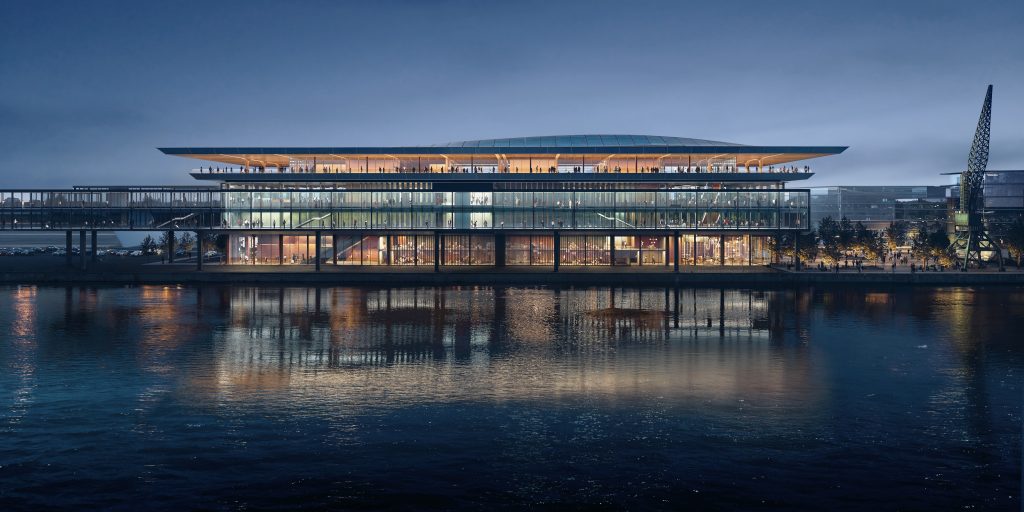
1st Place: Zaha Hadid Architects – night view from river – Render by Negativ
Arriving to board a ferry boat or cruise ship used to be a rather mundane experience. If you had luggage, you might be able to drop it off upon boarding, assuming that the boarding operation was sophisticated enough. In any case, the arrival experience was nothing to look forward to. I recall boarding the SS United States for a trip to Europe in the late 1950s. Arriving at the pier in New York, the only thought any traveler had was to board that ocean liner as soon as possible, find one’s cabin, and start exploring. If you were in New York City and arriving early, a nearby restaurant or cafe would be your best bet while passing time before boarding. Read more… Young Architects in Competitions When Competitions and a New Generation of Ideas Elevate Architectural Quality 
by Jean-Pierre Chupin and G. Stanley Collyer
published by Potential Architecture Books, Montreal, Canada 2020
271 illustrations in color and black & white
Available in PDF and eBook formats
ISBN 9781988962047
Wwhat do the Vietnam Memorial, the St. Louis Arch, and the Sydney Opera House have in common? These world renowned landmarks were all designed by architects under the age of 40, and in each case they were selected through open competitions. At their best, design competitions can provide a singular opportunity for young and unknown architects to make their mark on the built environment and launch productive, fruitful careers. But what happens when design competitions are engineered to favor the established and experienced practitioners from the very outset? This comprehensive new book written by Jean-Pierre Chupin (Canadian Competitions Catalogue) and Stanley Collyer (COMPETITIONS) highlights for the crucial role competitions have played in fostering the careers of young architects, and makes an argument against the trend of invited competitions and RFQs. The authors take an in-depth look at past competitions won by young architects and planners, and survey the state of competitions through the world on a region by region basis. The end result is a compelling argument for an inclusive approach to conducting international design competitions. Download Young Architects in Competitions for free at the following link: https://crc.umontreal.ca/en/publications-libre-acces/ 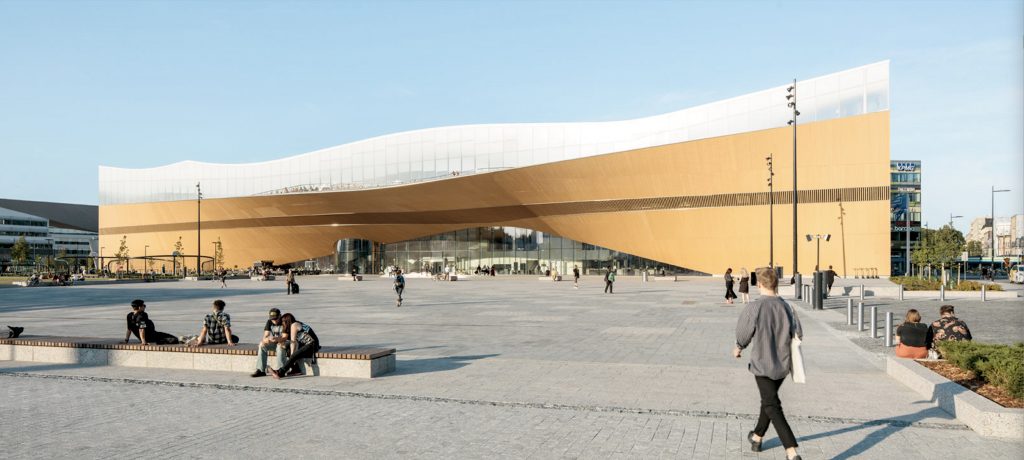
Helsinki Central Library, by ALA Architects (2012-2018)
The world has experienced a limited number of open competitions over the past three decades, but even with diminishing numbers, some stand out among projects in their categories that can’t be ignored for the high quality and degree of creativity they revealed. Included among those are several invited competitions that were extraordinary in their efforts to explore new avenues of institutional and museum design. Some might ask why the Vietnam Memorial is not mentioned here. Only included in our list are competitions that were covered by us, beginning in 1990 with COMPETITIONS magazine to the present day. As for what category a project under construction (Science Island), might belong to or fundraising still in progress (San Jose’s Urban Confluence or the Cold War Memorial competition, Wisconsin), we would classify the former as “built” and wait and see what happens with the latter—keeping our fingers crossed for a positive outcome. Read More… 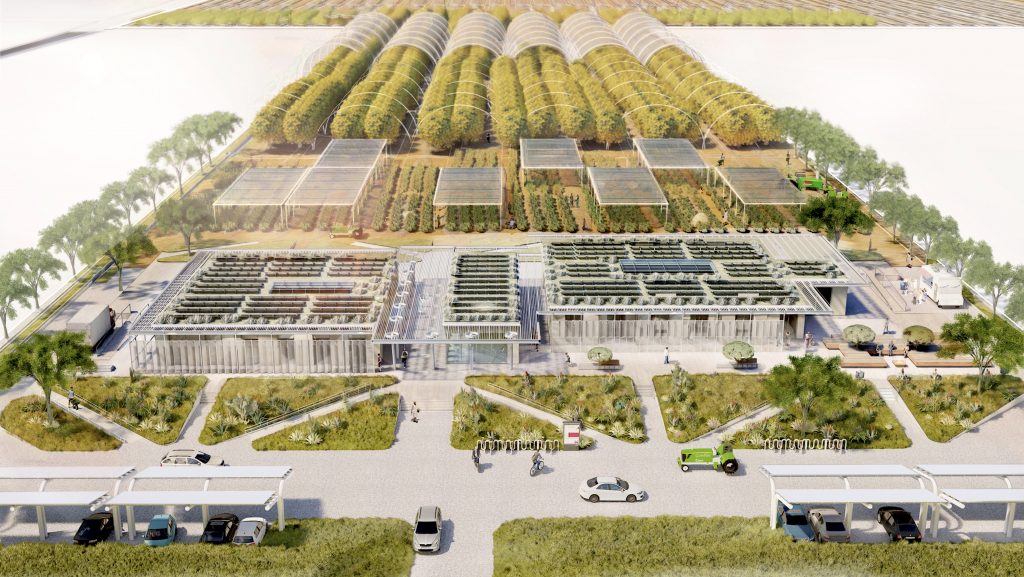
2023 Teaching and Innovation Farm Lab Graduate Student Honor Award by USC (aerial view)
Architecture at Zero competitions, which focus on the theme, Design Competition for Decarbonization, Equity and Resilience in California, have been supported by numerous California utilities such as Southern California Edison, PG&E, SoCAl Gas, etc., who have recognized the need for better climate solutions in that state as well as globally. Until recently, most of these competitions were based on an ideas only format, with few expectations that any of the winning designs would actually be realized. The anticipated realization of the 2022 and 2023 competitions suggests that some clients are taking these ideas seriously enough to go ahead with realization. Read more… 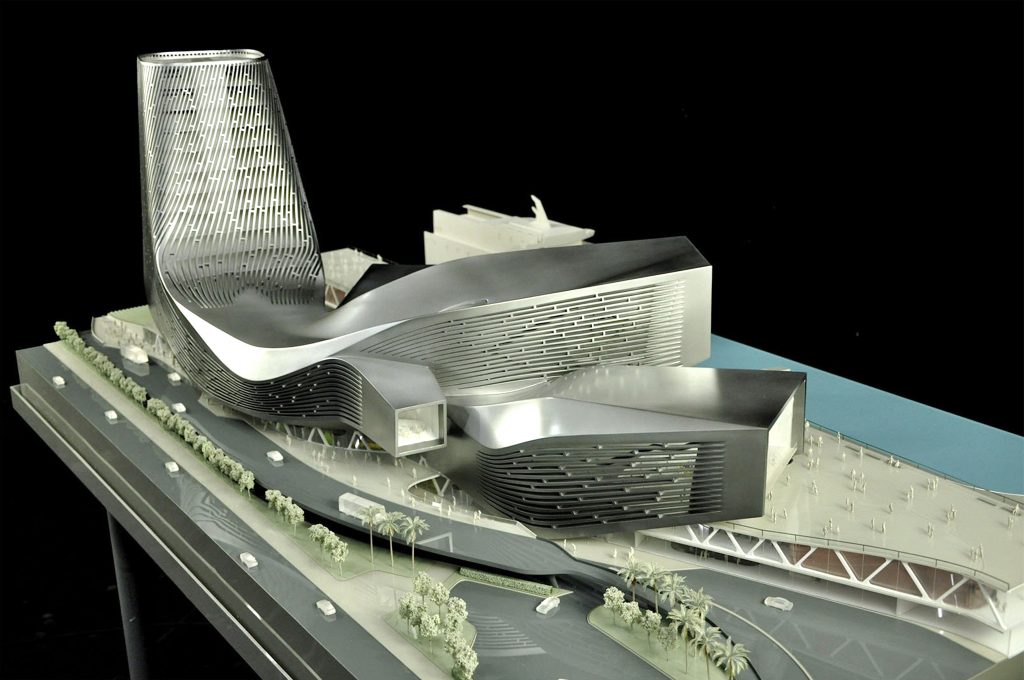
RUR model perspective – ©RUR
New Kaohsiung Port and Cruise Terminal, Taiwan (2011-2020)
Reiser+Umemoto RUR Architecture PC/ Jesse Reiser – U.S.A.
with
Fei & Cheng Associates/Philip T.C. Fei – R.O.C. (Tendener)
This was probably the last international open competition result that was built in Taiwan. A later competition for the Keelung Harbor Service Building Competition, won by Neil Denari of the U.S., the result of a shortlisting procedure, was not built. The fact that the project by RUR was eventually completed—the result of the RUR/Fei & Cheng’s winning entry there—certainly goes back to the collaborative role of those to firms in winning the 2008 Taipei Pop Music Center competition, a collaboration that should not be underestimated in setting the stage for this competition Read more… 
Winning entry ©Herzog de Meuron
In visiting any museum, one might wonder what important works of art are out of view in storage, possibly not considered high profile enough to see the light of day? In Korea, an answer to this question is in the making. It can come as no surprise that museums are running out of storage space. This is not just the case with long established “western” museums, but elsewhere throughout the world as well. In Seoul, South Korea, such an issue has been addressed by planning for a new kind of storage facility, the Seouipul Open Storage Museum. The new institution will house artworks and artifacts of three major museums in Seoul: the Seoul Museum of Modern Art, the Seoul Museum of History, and the Seoul Museum of Craft Art.
Read more… |



























